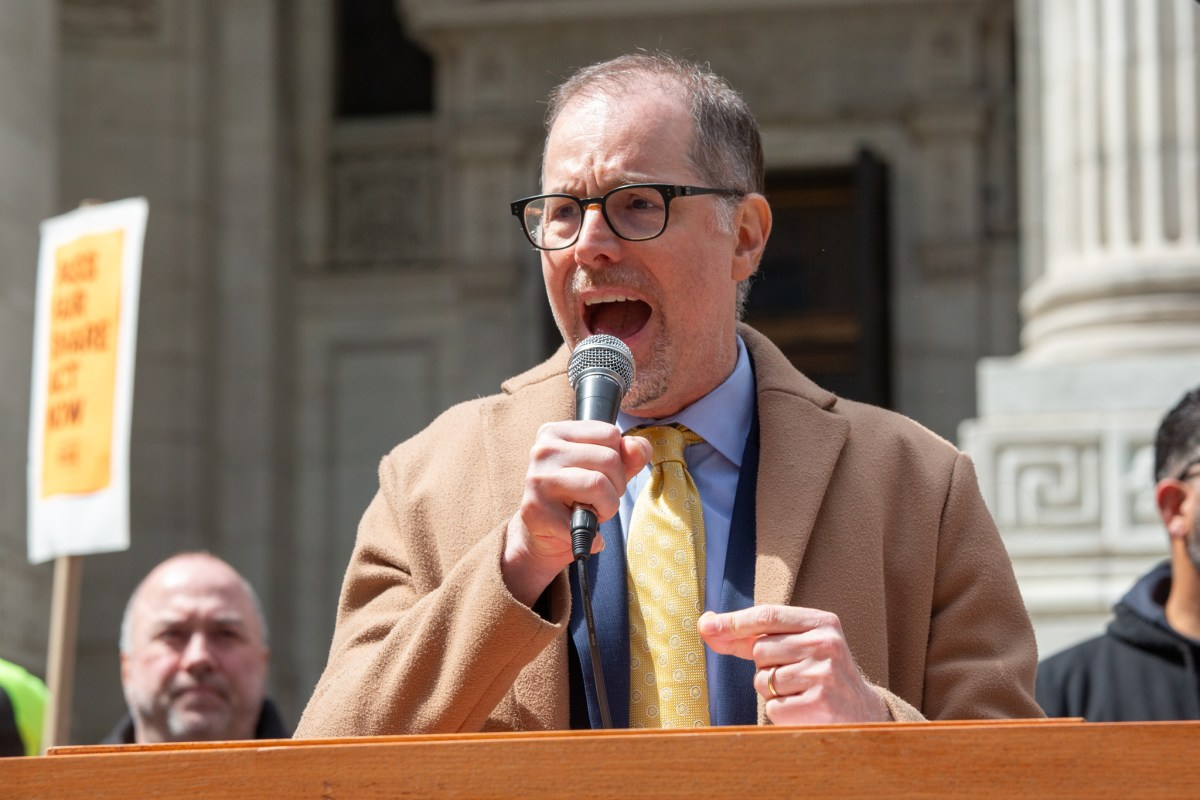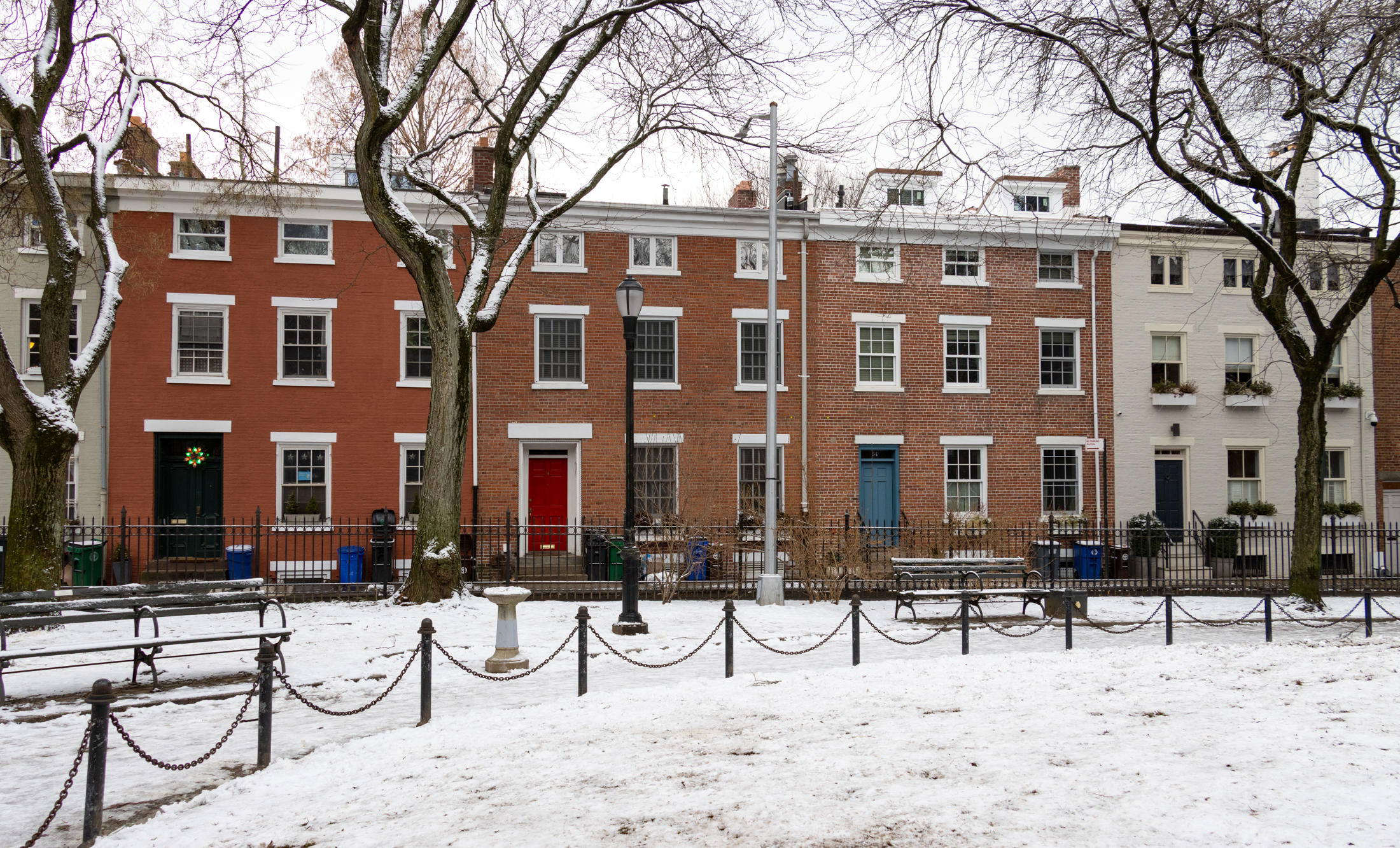Red Hook: Industrial Zone or Residential Nirvana?
On the eve of the City’s final decision on whether–and where–to establish formal industrial business zones, emotions are running high in the most contentious case, Red Hook. As reported in The Times today, the conflict is epitomized by the disagreement over the fate of the Rever sugar factory, bought last year by Thor Equities for…



On the eve of the City’s final decision on whether–and where–to establish formal industrial business zones, emotions are running high in the most contentious case, Red Hook. As reported in The Times today, the conflict is epitomized by the disagreement over the fate of the Rever sugar factory, bought last year by Thor Equities for $40 million. On one side is Thor CEO Joseph Sitt, with John McGettrick of the Red Hook Civic Association and Dorothy Shields of the Red Hook Houses East lined up behind him; on the other is Robert Hughes Jr. and his cousins who own the Eerie Basin Bargeport and fear that allowing the Revere to be turned into residential housing is a slippery slope that will ultimately lead to the port’s extinction and an accompanying loss of jobs. Hughes has the support of the South Brooklyn Local Development Corporation as well as Community Board 6 and Ray Hall, a founder of community group Red Hook Rising. Tom Fox, president of New York Water Taxi, looks at it this way: “There are plenty of places to build luxury housing,” he said, “but there’s only one working waterfront.”
Port Owner says City Wavering [NY Times]





Bx2Bklyn wrote:
“Except that the most jobs will be for the construction industry and when the luxury housing is built, they go away.”
Um..whaa?
More residents bring in demand for more shops, stores, restaurants, services, you name it.
All low-pay, you might say?
1) better than the utter dearth of opportunities than presently exist there
2) there will be much more ongoing demand for skilled trade services (that do pay well) like plumbers and other services contractors in the area, as
a) reonvation will ripple through the area
and
b) there is always ongoing need for re-renovation and customization. Once things are rebuilt, they are rebuilt again when new people move in. Better kitchen, bathrooms, surfaces, etc. That is a fact. Things get redone every few years.
So, it is more like a whole host of new business of stores, services, craftsmen, restaurants etc get to come in, **AND** there is plenty of demand for ongoing construction workers after that.
And all these provide long-term jobs (from low-paying entry-level all the way through YES, even higher-paying skilled craftsman jobs), increase the tax base, improve schools and lower crime.
Bx2bklyn,
You think shipping cocoa beans to RH only to put the cargo containers onto tractor trailors and truck them over the Verranzano Bridge to NJ. From an environmental standpoint doesn’t it make more sense to ship to Bayonne or Staten Island in the first place?
In your book Stevedoring is not a viable business but unfortunately it’s a necessary one. Do you honestly think it’s the only industry that is subsidized? How about all those tax breaks big corporations get- that’s a subsidy too.But we want them to stay in NYC- right?
Had the CIty built on the port businesses, instead of neglecting them, they would be in far better shape.
Hugh barge is not get displaced!! The sugar refinery site is pretty far the barge operations. This whole story was cooked up by the crazy industrial retentionists such as SWBIDC. Joe Sitt is not kicking any active industry out of RH.
I am not sure that having a residential building there would require Hughes to move.
However, if this somehow also comes down to Hughes potentially being relocated for some reason, isn’t there still plenty of room just a few feet over (literally…) right next to it there in Gowanus Bay?
..Or perhaps along the vast stretches of the long Sunset Park waterfront?
I am not sure Hughes would really be asked to move, but you make this sound as if Hughes’ current location is the only patch of water available in Brooklyn, and from what I see, that’s hardly the case.
Except that the most jobs will be for the construction industry and when the luxury housing is built, they go away.
No one says they have rights to the land they lease but the idea that the water front should be for those who crave the views is patently ludicris. The city does not survive on the views. If all of these luxury developers have their way, there will be no businesses left except for chi chi stores, they will lock up the waterfront so that the public (you remember- taxpayers?) can no longer go there, and will suck the life out of what makes NYC so great. Then Disney can buy us for a new theme park- New York Castle. This was always a great working city- I’ll be sorry to see become a playground for the Trumps and Ratners. Boring, bloodless and bland.
I don’t believe in hiding your head in the sand when it comes to change- it’s coming no matter what. But CHP is right- it’s all luxury housing and Roman Circus facilities. When does it stop? When it’s Blade Runner?
Stevedoring is not at the Sugar refinery spot but it’s the other tempest in Red Hook’s teapot. Sorry CrownHeightsProud, but stevedoring is heavily subsidized – to the tune of 25 million dollars a year – not a viable business.
if Hughes barges get displaced, say goodbye to the following things being staged in NYC:
macy’s fireworks
restoring east river bulkheads
barging containerized trash
delivery of cement via barge
of course, these things can be staged in NJ, but it will be at much greater expense.
CrownHeightsProud,
First, American Stevedoring rents. They do not own.
Any commercial landlord reserves the right to renew a lease or not (and perhaps pursue other use, as is their right).
In addition to that, please explain then how the plight of 150 people (and a business owner who wants to live high on the hog as in any capitalist model) outweighs the right of the landlord, which by extension is the city representing the people, which is surely many more than just 150. Heck, employment (and taxable benefit to the city, schools etc) in the immediate area would boom to a whole order of magnitude higher, if more of a residential community were allowed to expand into the area. More people living there needing more good and services, instead of some huge walled-off no-mans-land with big loud trucks powering through side streets as short cuts and more desolate stretches that lending themselves more to crime and isolation than community, commerce and inclusion.
What right does the business owner have to keep all of that waterfront that he does not own, but merely rents?
None.
Any sour grapes to the contrary is, as you put it, whining.